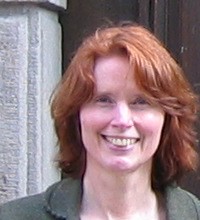He adds yet another twist to this discussion of truth when he nots that "because of the intricate, complex nature of the land, it is not always possible for a storyteller to grasp what is contained in a story. The intent of the storyteller, then, must be to evoke, honestly, some single asplect of all that the land contains. . .[and because] different individuals grasp the story at different levels. . . regard for truth must be at the primary (level)" - with focus on who was there, what happened, whe, where, and why things occurred." So that is something to think about as you read O'Brien - who presents a version of truth that is both radically different and the same as what is posed here.
You then recollected + wrote family stories. Family stories can become part of the "landscape" of an extended group - they define identities and realitionships, what is "done" and what is not"done." The unconscious choices involved in creating and telling family stories reflect both the culture at large, and the more local culture of a particular family. Adding to this list - can open up both a reflection on self - and on the ways the culture sets us up to be those selves. The stories I shared included a "rebel-hero" story, a 'wise' parent story, and a crafty pet story - all of which have corelates in the Arne-Thompson tale-type index for folklore. So it seems things change and stay the same. Our story heritage creates that are tellable - and it sets aside some experiences as not-stories - experiences that don't fit into our unconscious assumptions about what makes a story. Those experiences may need telling - but can become forgotten because their "unthinkableness" excludes them from the narrative carriers we use to hold & remember experience. One line of creative nonfiction is about telling those kinds of stories - and O'Brien's piece is one of those.
For Wednesday:
Read: O'Brien: "How to tell a true war story" http://us.history.wisc.edu/hist102/pdocs/obrien_story.pdf
Blog 7: More brainstorming for Project 1

No comments:
Post a Comment